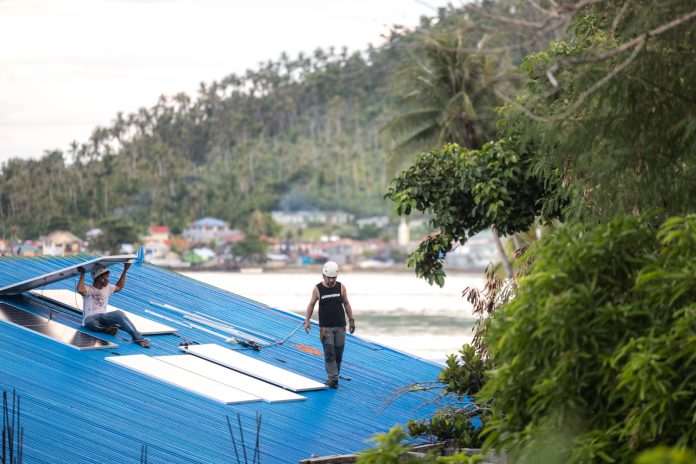Residents in the village of Coring in the southern Philippines use solar energy to demonstrate that renewable energy is “the most sensible energy source” for climate-vulnerable areas and island communities.
With the support of environmental groups, resident of the barrio in Dinagat Islands installed solar panels in their village gymnasium as part of recovery efforts following the devastation of Typhoon Odette (Rai) last year.
During and after the onslaught of the typhoon, the village’s diesel-powered electric generator failed to restore power in the area, disrupting recovery efforts.
Village officials said the additional 4,800 watts of electricity from the solar panels provided by Greenpeace “will prove beneficial to a community struggling to get back on its feet.”
Greenpeace campaigner Virginia Benosa-Llorin said investments in clean energy will protect communities.
She said the findings of the recent National Inquiry on Climate Change report recognize that a “just transition” to renewable energy and an end to fossil fuel dependence is “necessary and urgent.”
“As climate impacts continue to affect the most vulnerable sectors, it is imperative that our new government tap the country’s massive potential for RE development to provide safe, sustainable, reliable and affordable energy for Filipinos,” said Benosa-Llorin in a statement.
Greenpeace said that beyond off-grid installation, the Philippines must invest in utility scale RE, particularly solar and wind, to usher in the “just transition” to clean and safe energy.
In a 2020 report, the group said that investment in wind and solar impacts job creation and other baseline economic indicators positively, as well as the transformation of energy systems.
The group highlights how renewable energy investment is an ideal and relatively immediate vehicle for economic development.
Greenpeace is calling on the Philippine government to increase its RE target to at least 50 percent RE by 2030, a figure that is highly achievable and can be delivered mostly by solar power.
The people of the village of Coring has joined the calls of youth climate advocates for the government to expedite the shift toward renewable energy.









